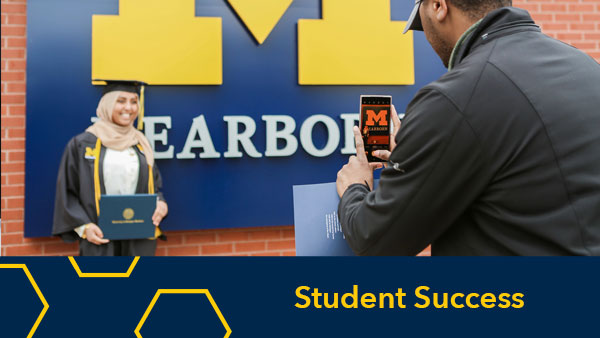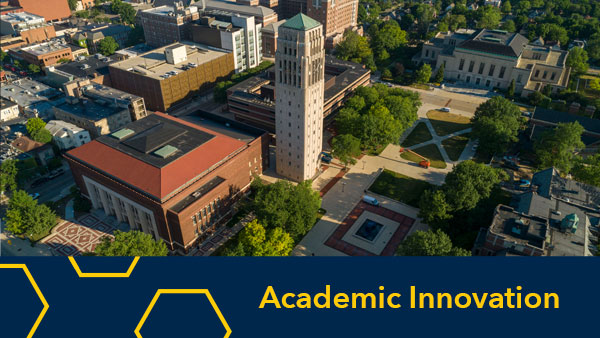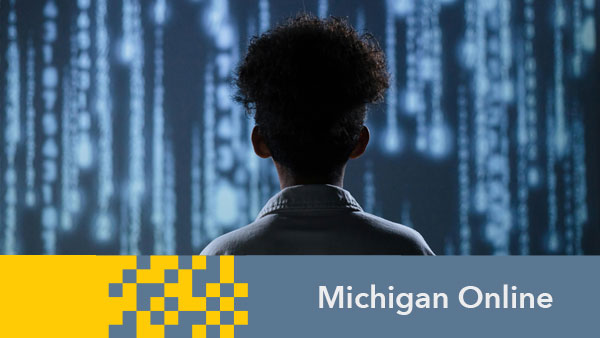Ellen Kuhn, Public Engagement Specialist
Elyse Aurbach, PhD, Public Engagement Lead
While exploring the possibility of launching the new Public Engagement Faculty Fellowship, the Public Engagement team in the Center for Academic Innovation met with a number of faculty, associate deans, and staff supporting public engagement around campus. We shared our vision for the Fellowship—to help faculty who are relatively new to public engagement gain important skills—and asked for feedback about our proposed model for the Fellowship. During these meetings, we repeatedly heard one thing from our partners: that faculty who already have significant experience in public engagement could also benefit from the Fellowship, although in different ways. Based on these conversations, we are excited to announce the Mentor Fellows program as part of the Public Engagement Faculty Fellowship.
Who are Mentor Fellows?
Faculty with more extensive experience in public engagement – whether partnering with communities on a mutually-beneficial project, engaging with the media, or testifying to policymakers – are encouraged to consider a position as a Mentor Fellow. As with the Fellows program, we welcome Mentor Fellows from all disciplines and backgrounds with different kinds of public engagement. Faculty at any career stage may act as Mentor Fellows, though we anticipate that this opportunity will fit best for mid- or late-career faculty.
What is the Mentor Fellows program?
As we shared in an earlier blog post, the Public Engagement Faculty Fellowship will involve two phases—a Studio Experience in May and project support—and Mentor Fellows can be involved in both of these phases.
During the Studio Experience, Mentor Fellows will work closely with Fellows. Leveraging their own experiences in public engagement, they will serve as guides as Fellows learn and practice key skills necessary for public engagement, particularly as Fellows develop proposals for ambitious public engagement projects. Attendance will be required for Mentor Fellows at specific workshops during the Studio Experience (more details available in this schedule); in return for their time and expertise, Mentor Fellows will be welcome to participate in all elements of the Studio Experience. Through participation in the Studio Experience, Mentor Fellows will gain access to an interdisciplinary, intergenerational group of scholars who could help them think about their own public engagement work in new ways. Additionally, Mentor Fellows will receive public recognition, opportunities to showcase their public engagement work, and a $1,500 stipend.
In the project support phase, Mentor Fellows will be eligible to apply for project support as part of Fellows-led teams proposing ambitious, innovative public engagement projects (Mentor Fellows may not lead project proposals during this pilot year). In this way, we hope to foster exciting collaborations and continued opportunities for learning.
How will we recruit and select Mentor Fellows?
During the pilot year of the Public Engagement Faculty Fellowship, we are planning to support three Mentor Fellows.
Mentor Fellows will be recruited via nomination and a brief application. Self-nominations for the Mentor Fellows program are welcome. To access the nomination form, please visit: https://ai.umich.edu/pe-faculty-fellowship
Nominations must be received by 11:59 p.m. on Monday, February 17, 2020.
Because Academic Innovation is interested in supporting the full breadth of public engagement, we are not accepting Mentor Fellows until we have selected Fellows and better understand the needs of the cohort. We will notify selected Mentor Fellows by late March 2020.
Questions?
Email [email protected] or come chat during the following coffee hours:
All coffee hours will take place in the kitchen area of Academic Innovation, located on the eighth floor of Hatcher Library.
We look forward to supporting the needs of those who are already experienced in public engagement, as well as learning from their deep expertise!


